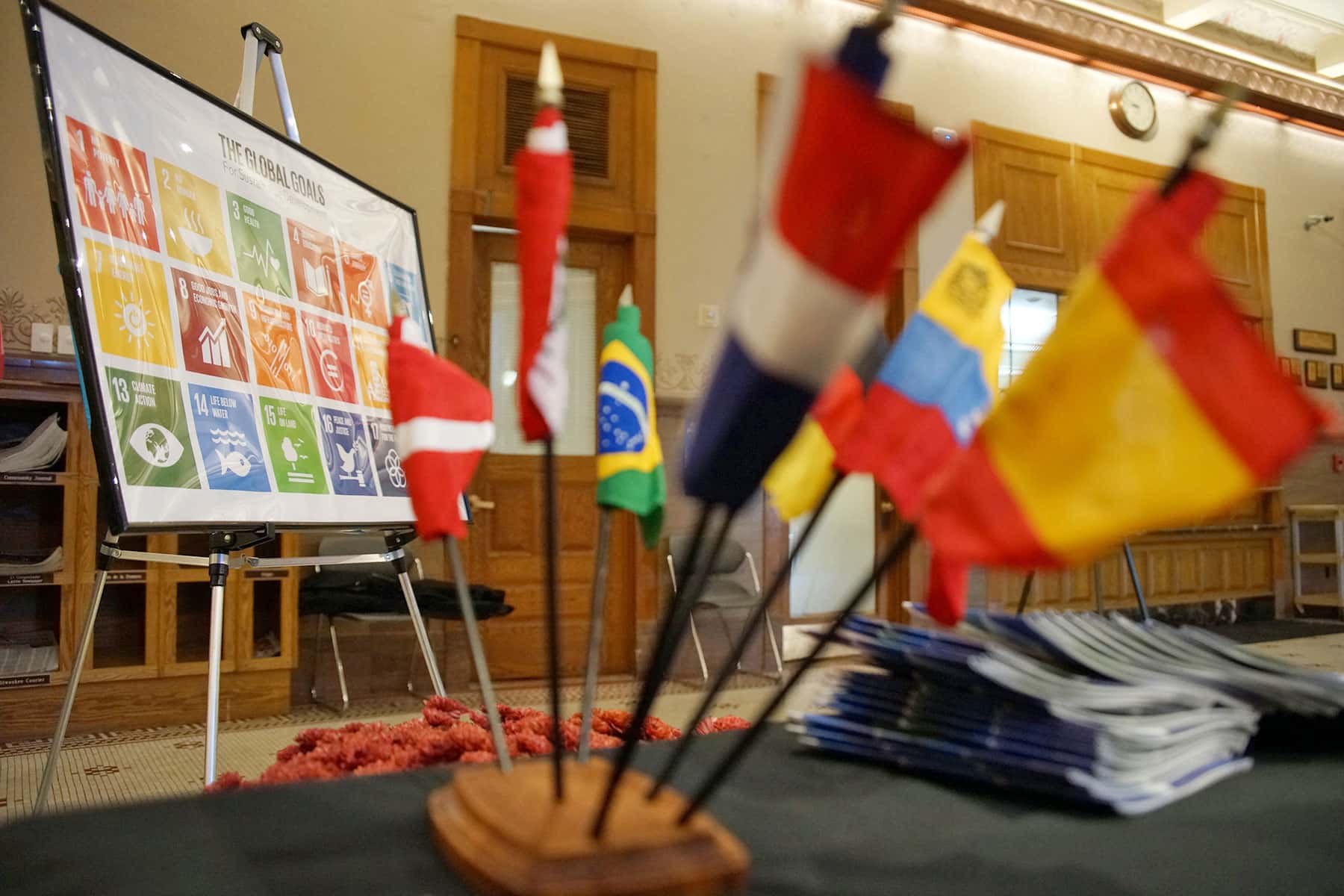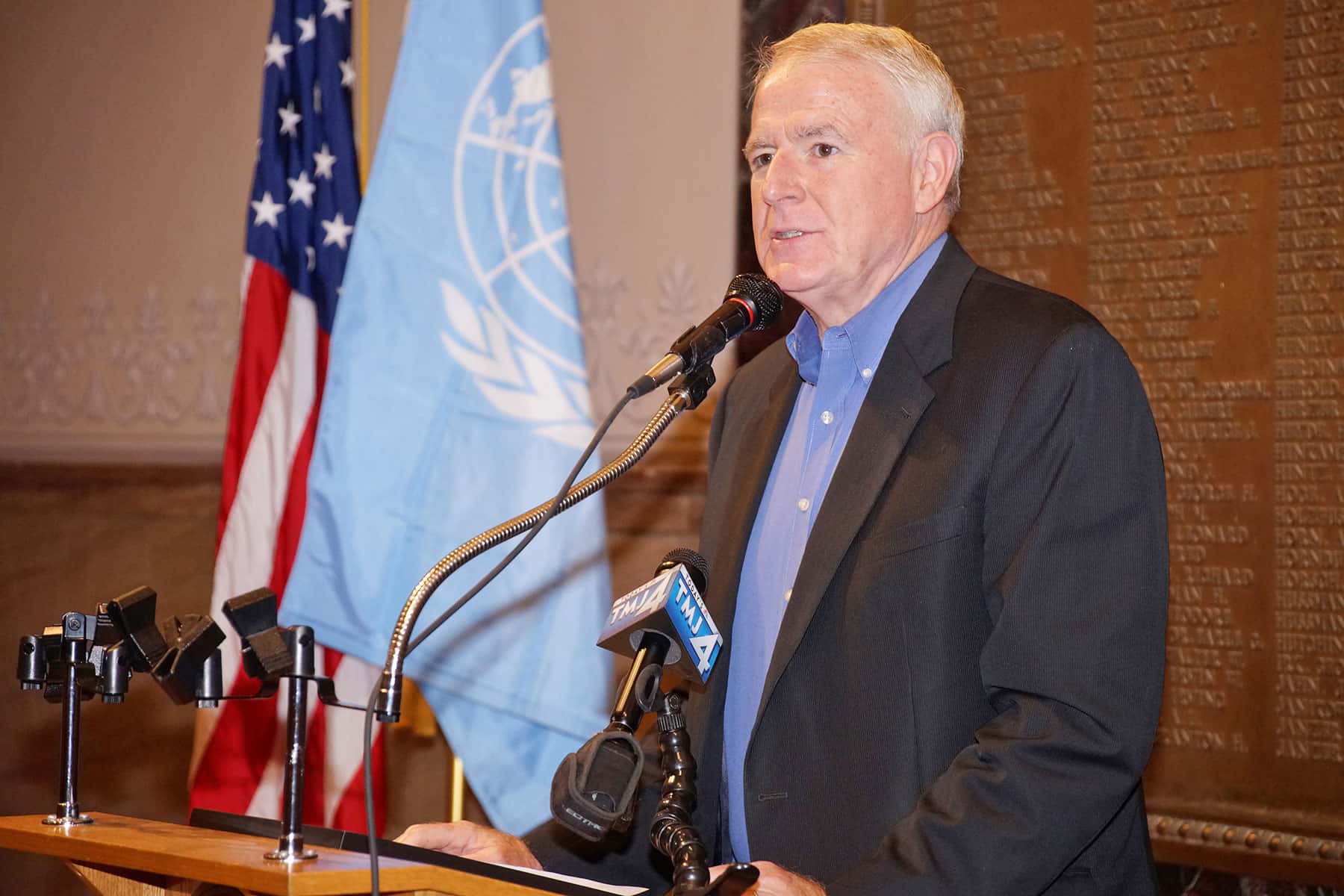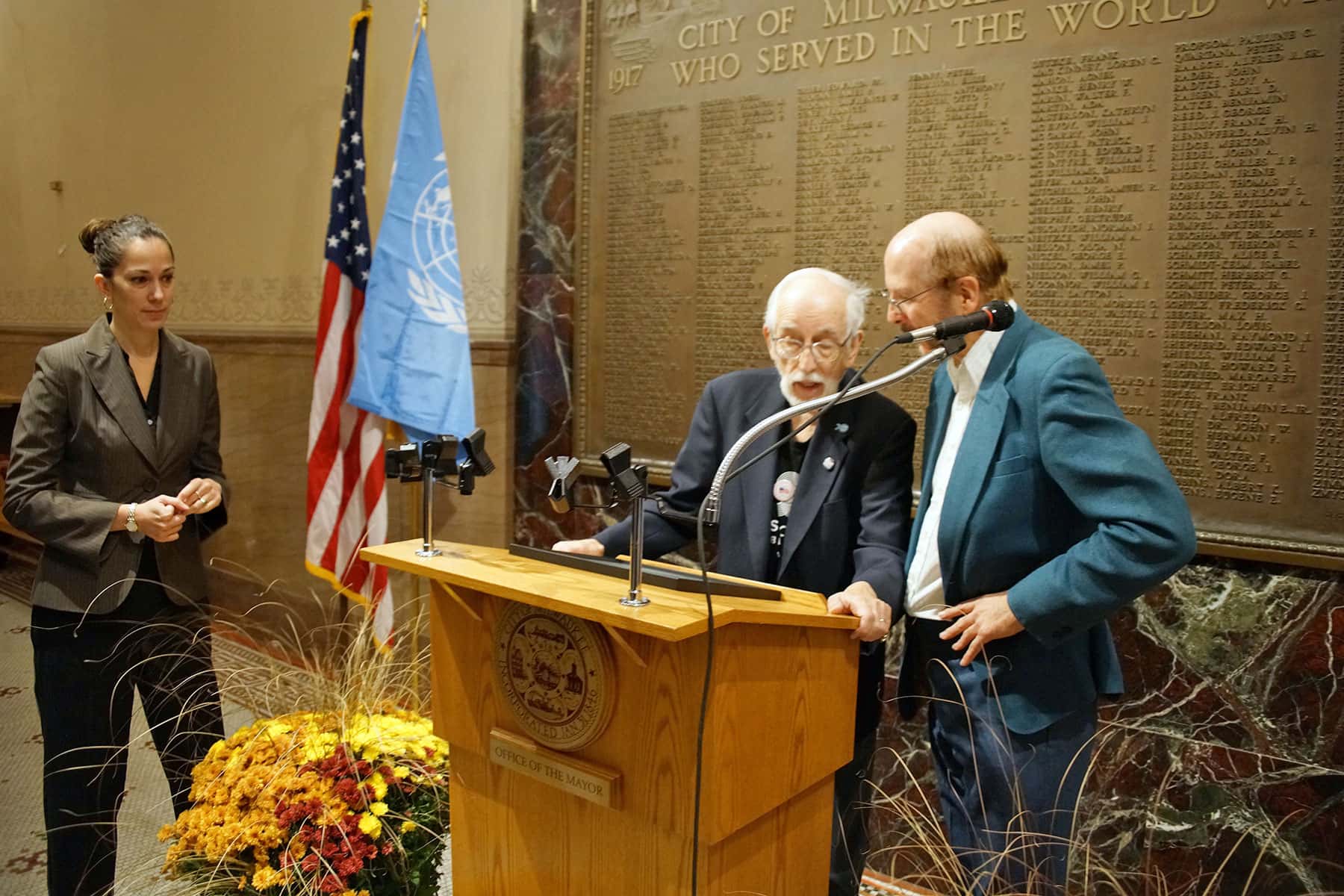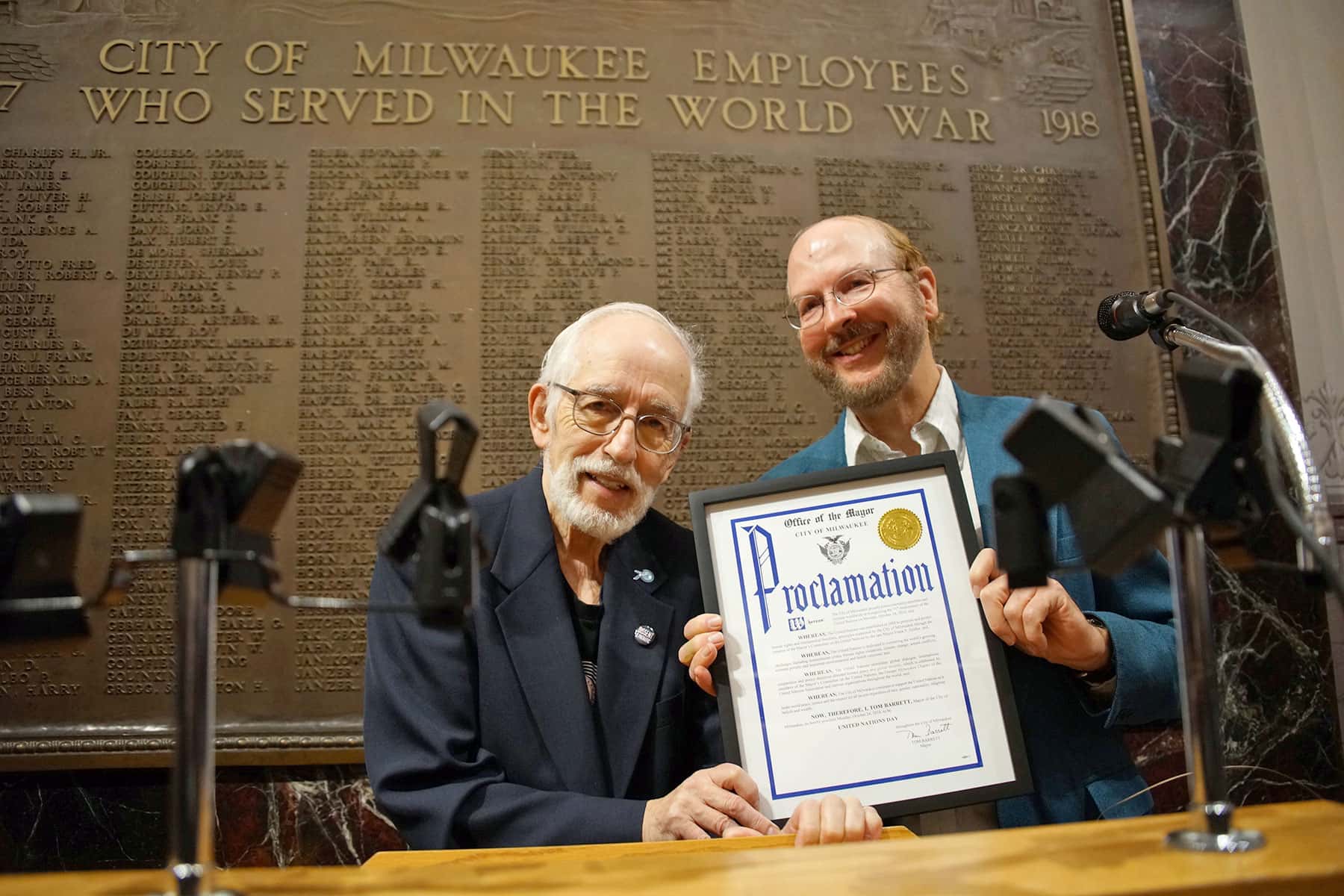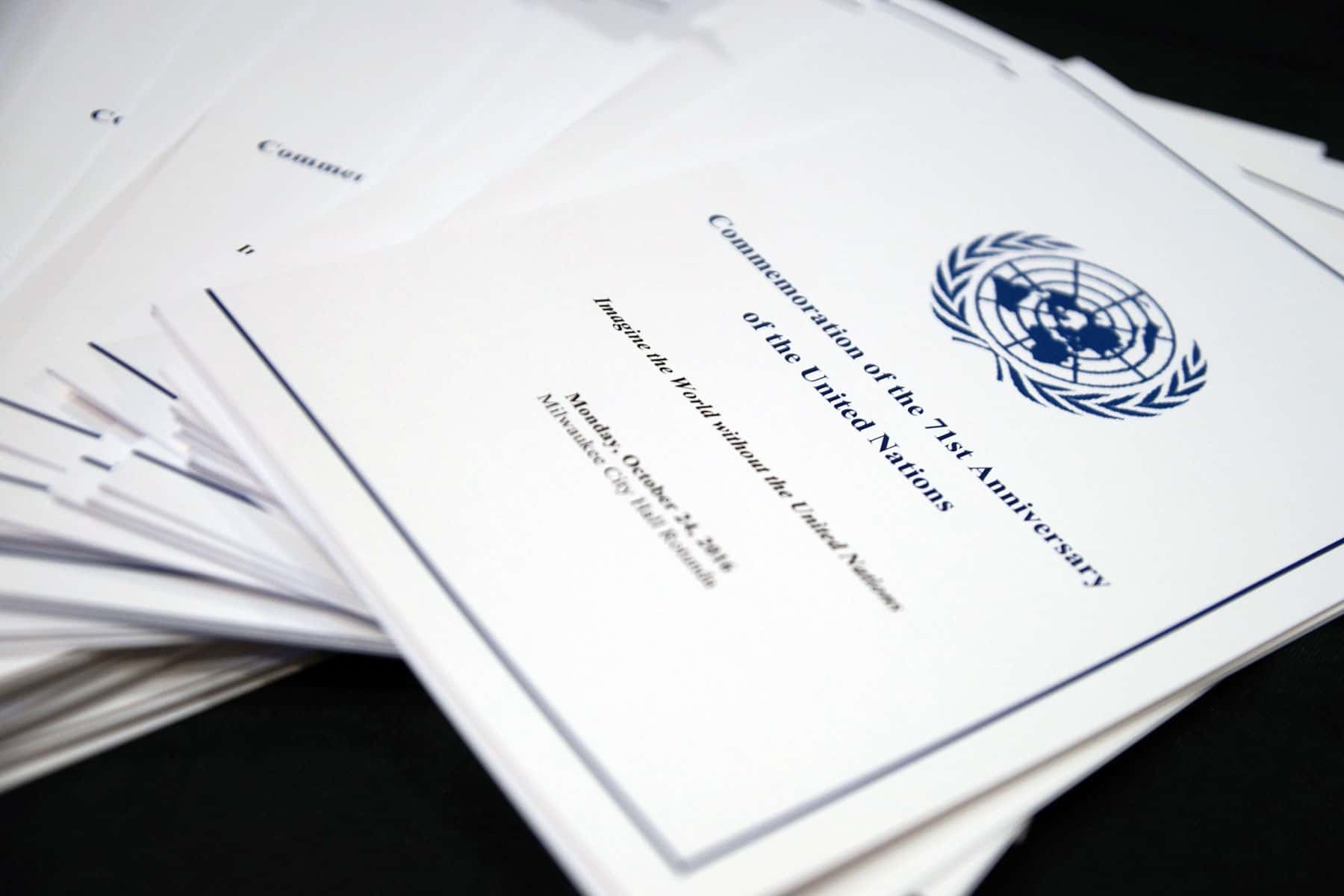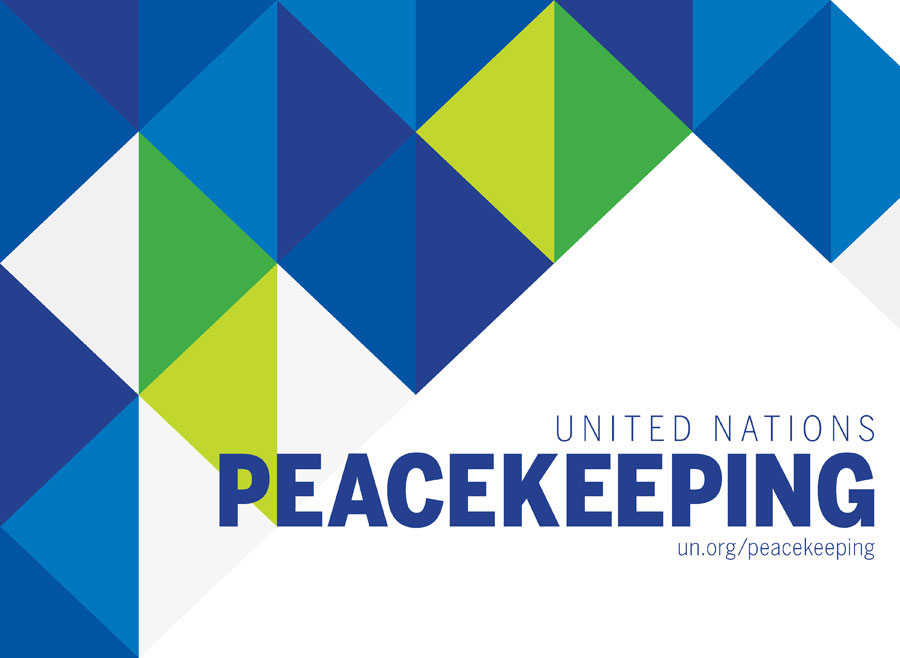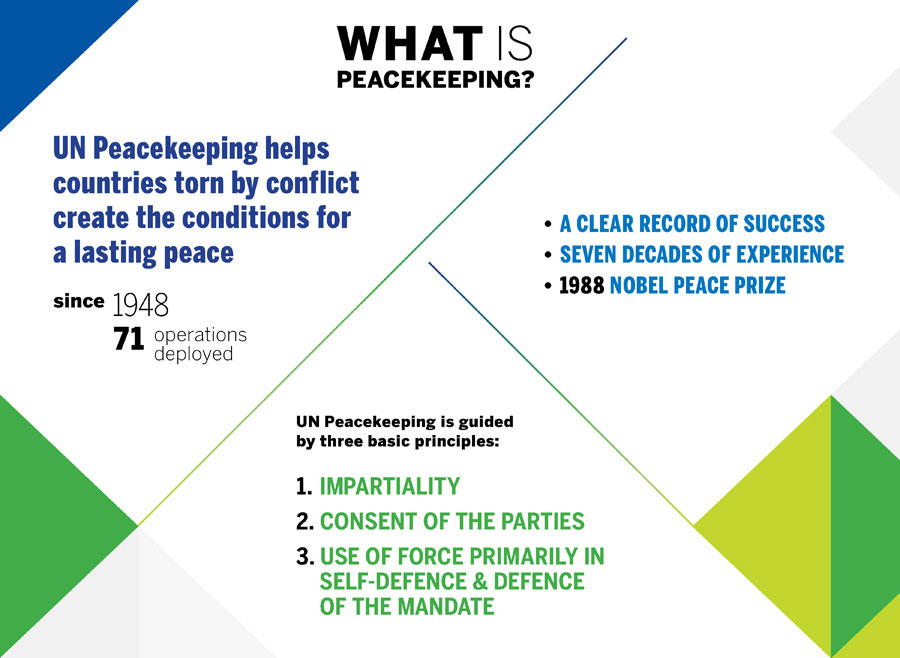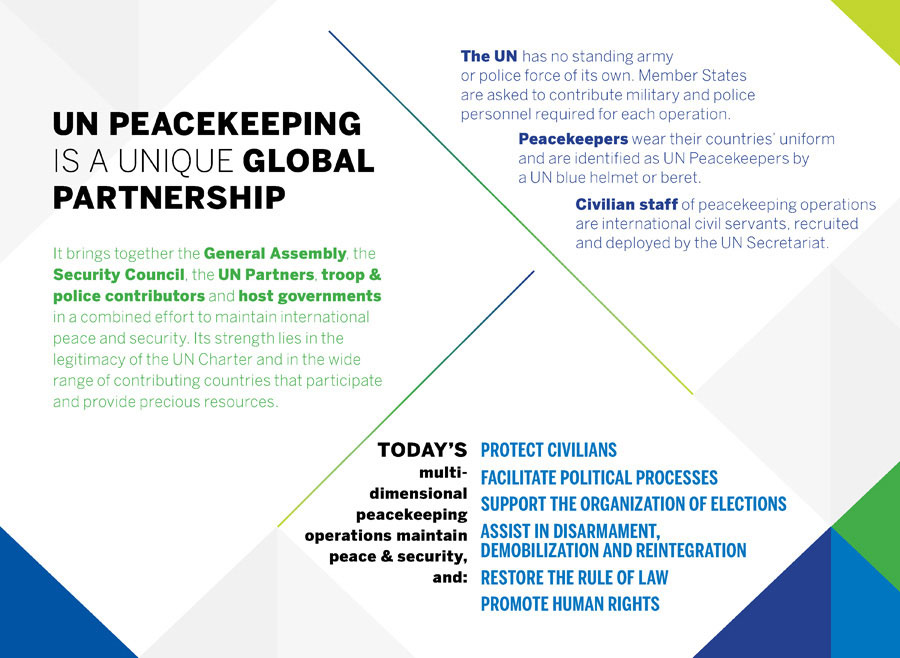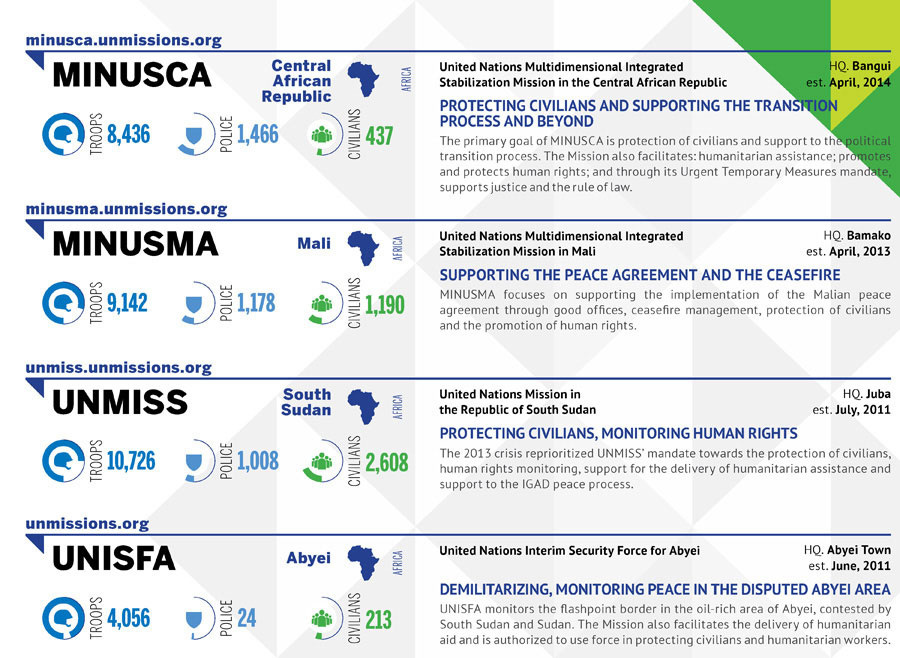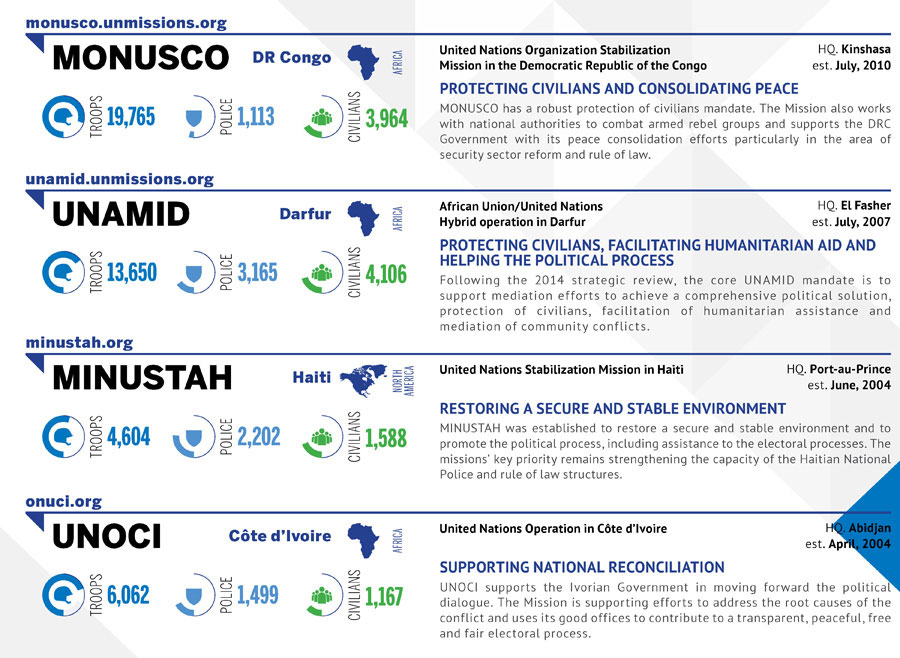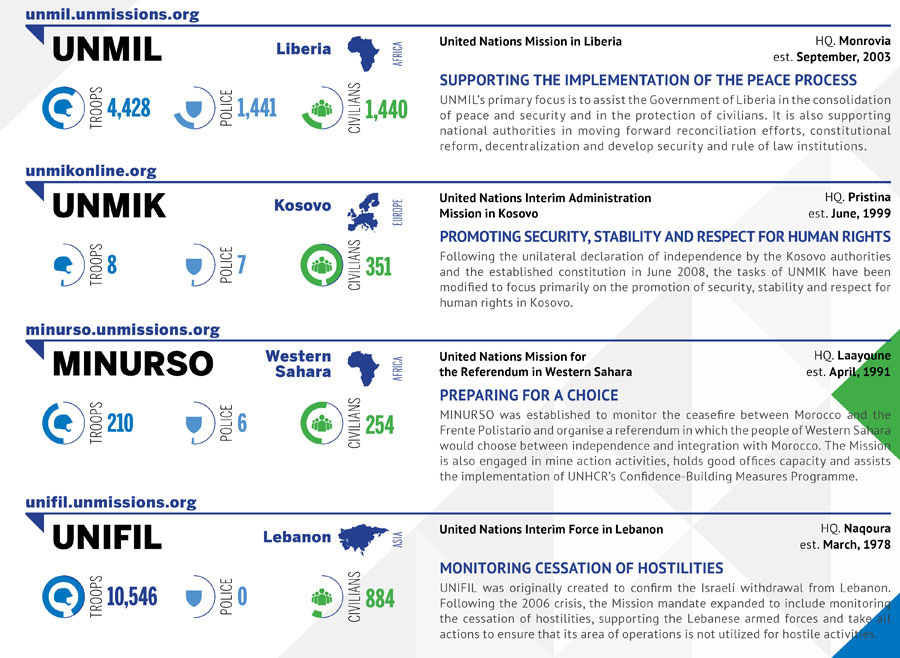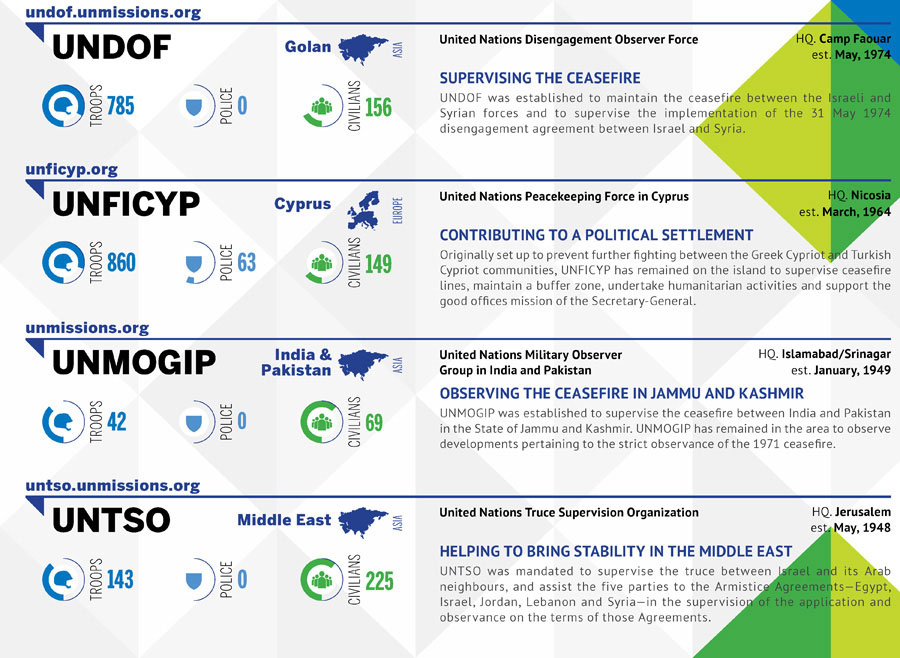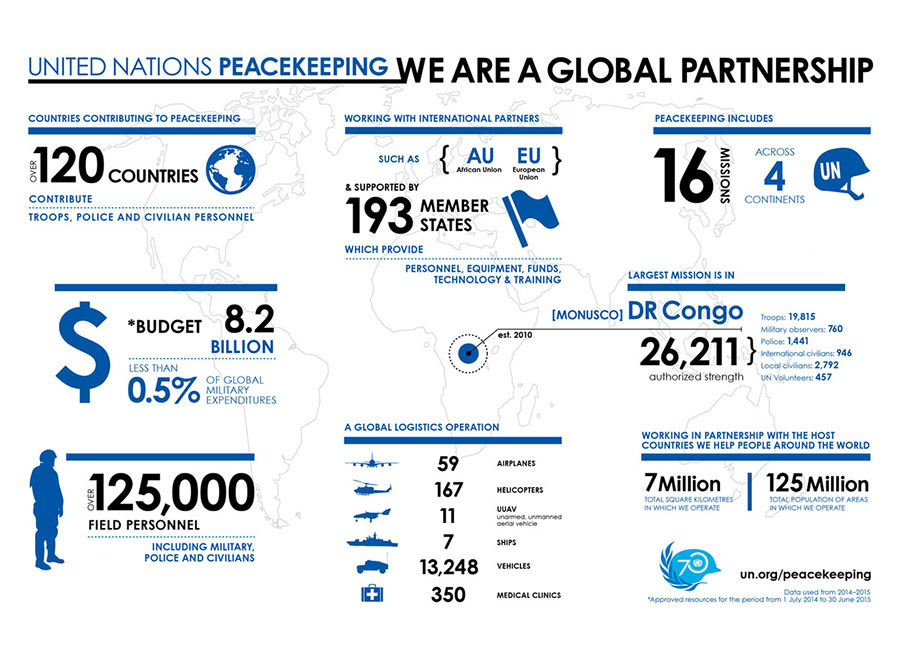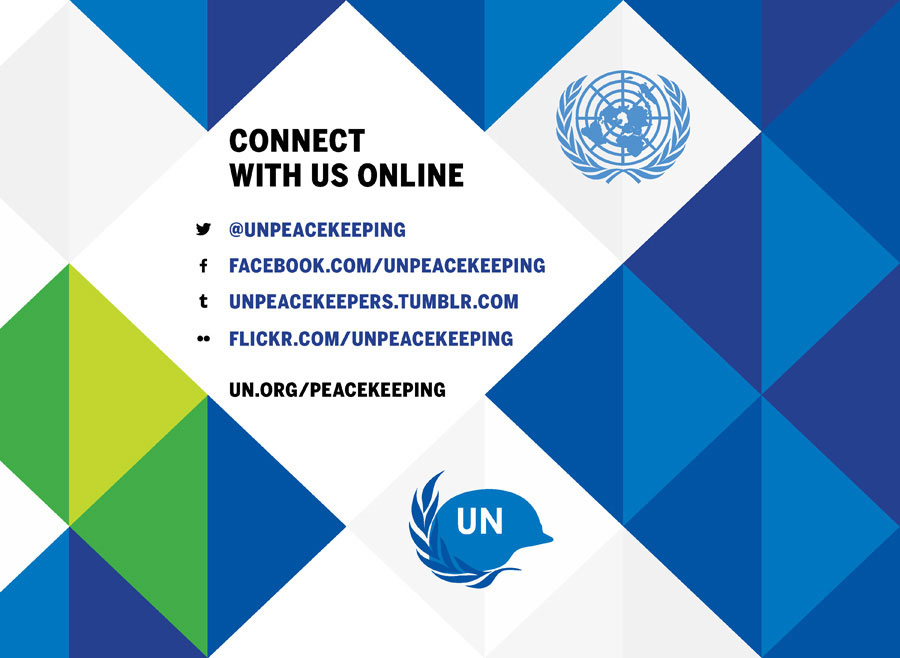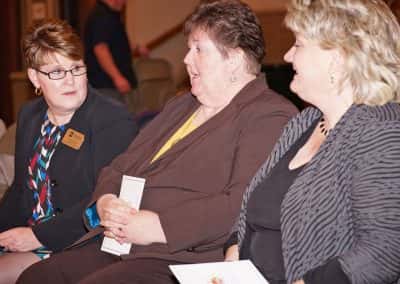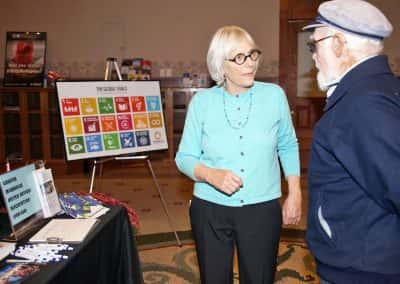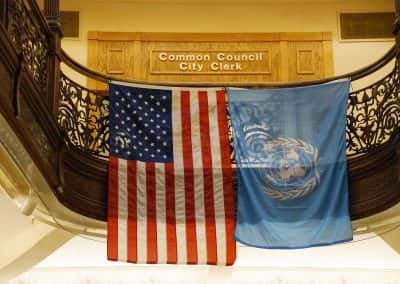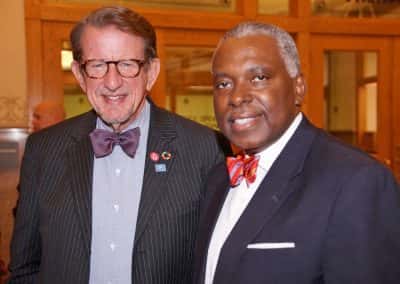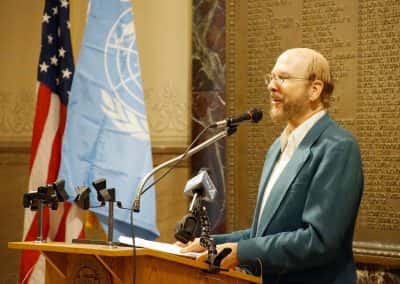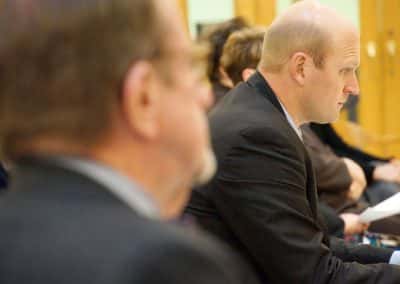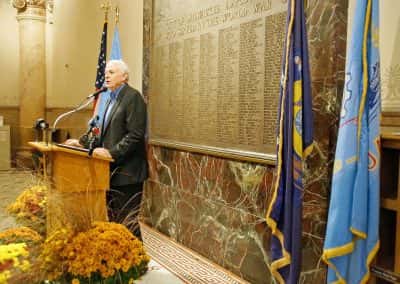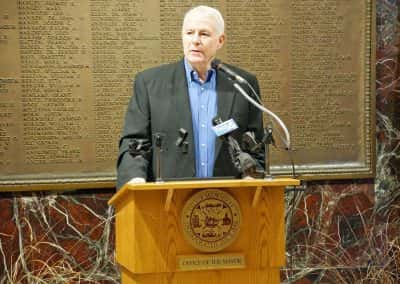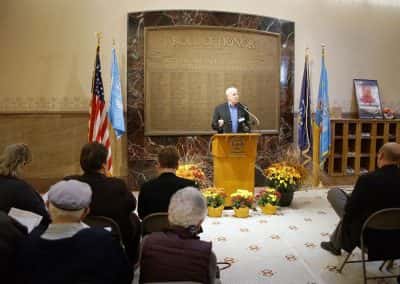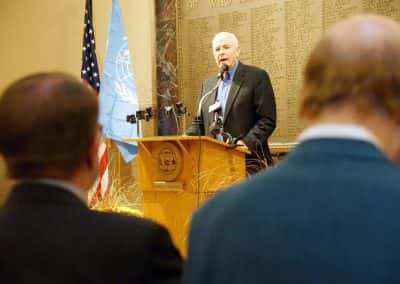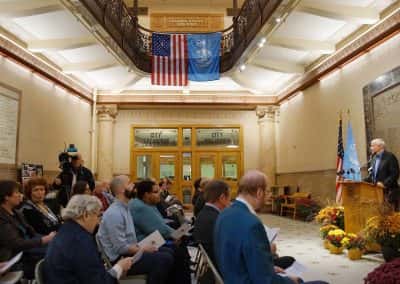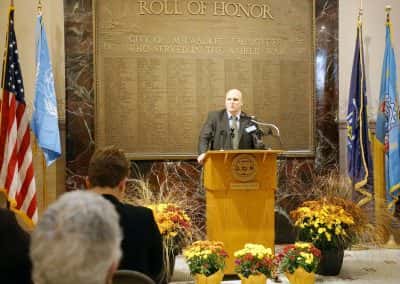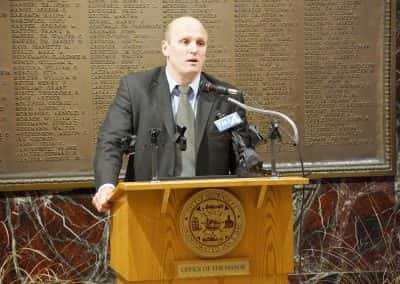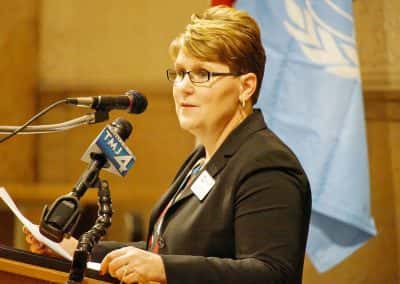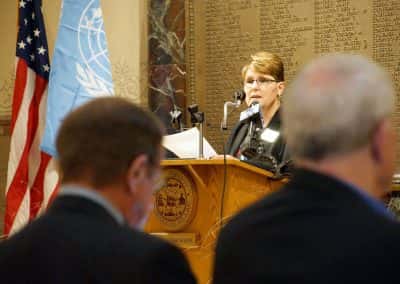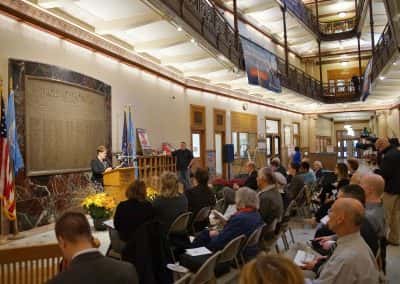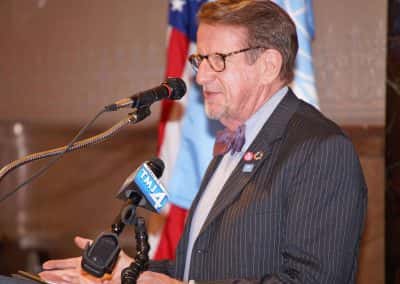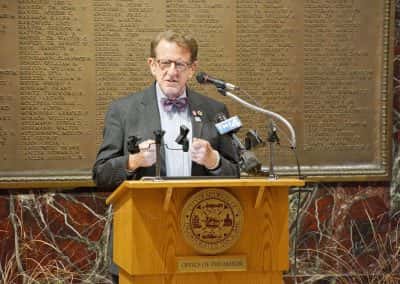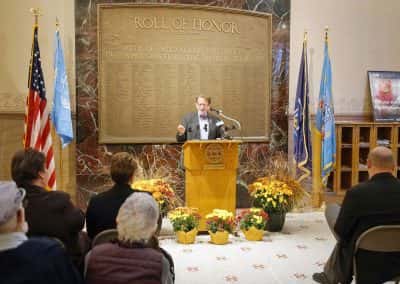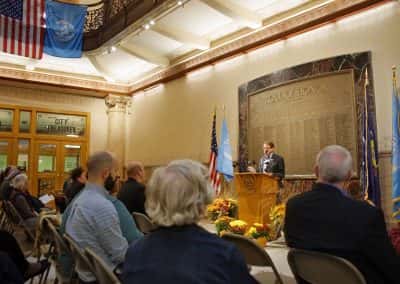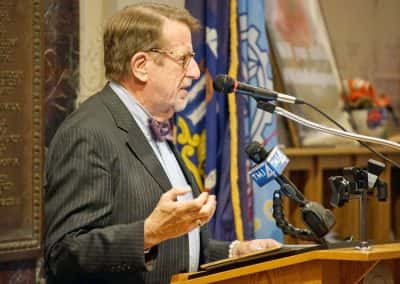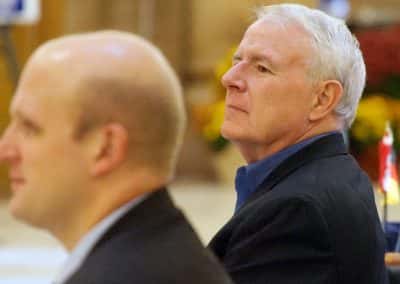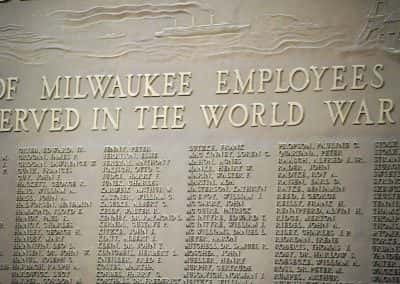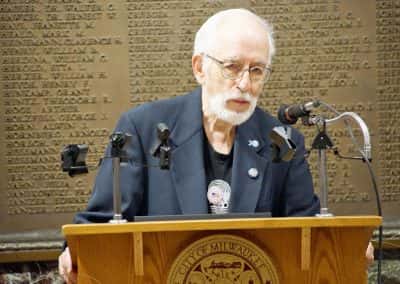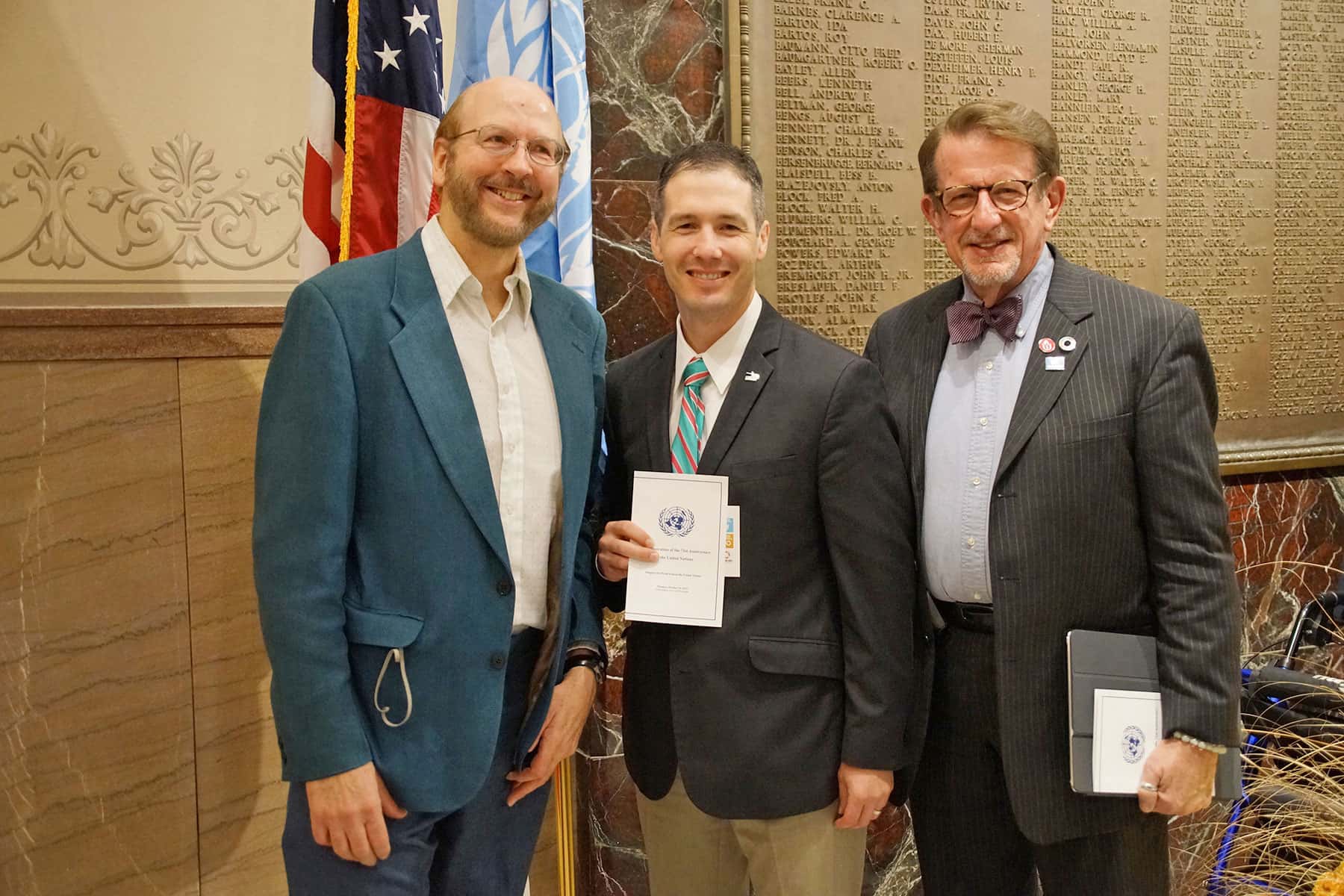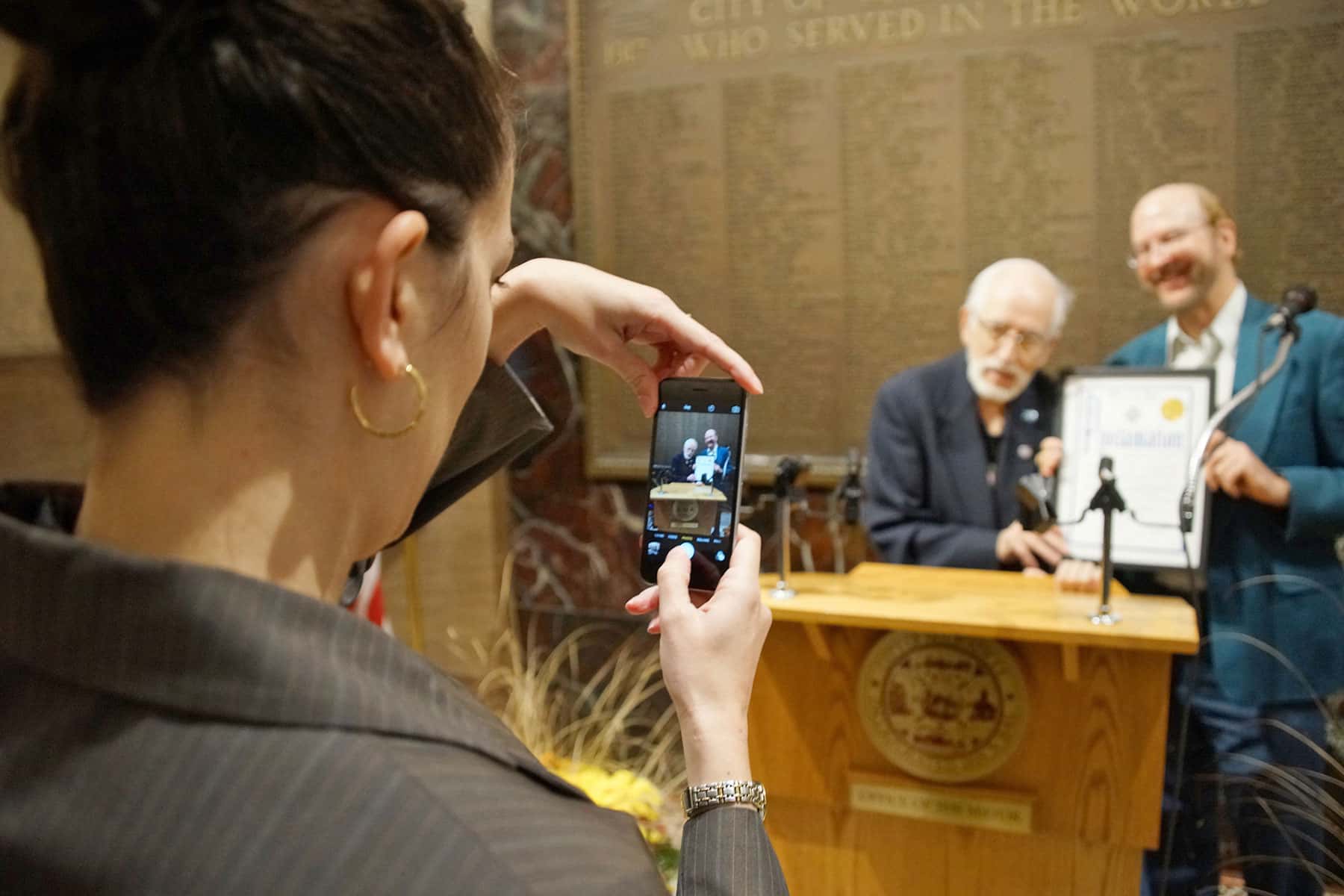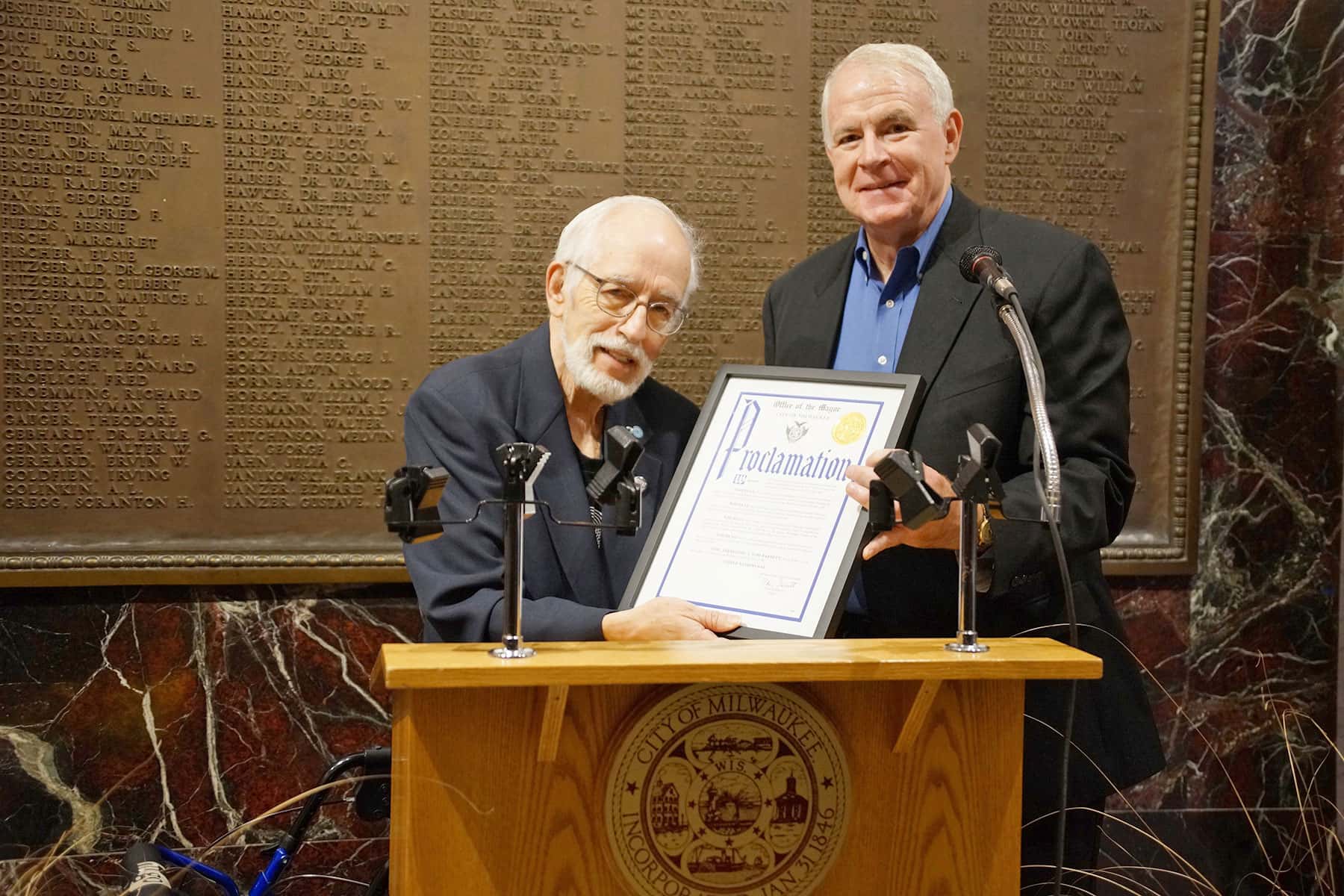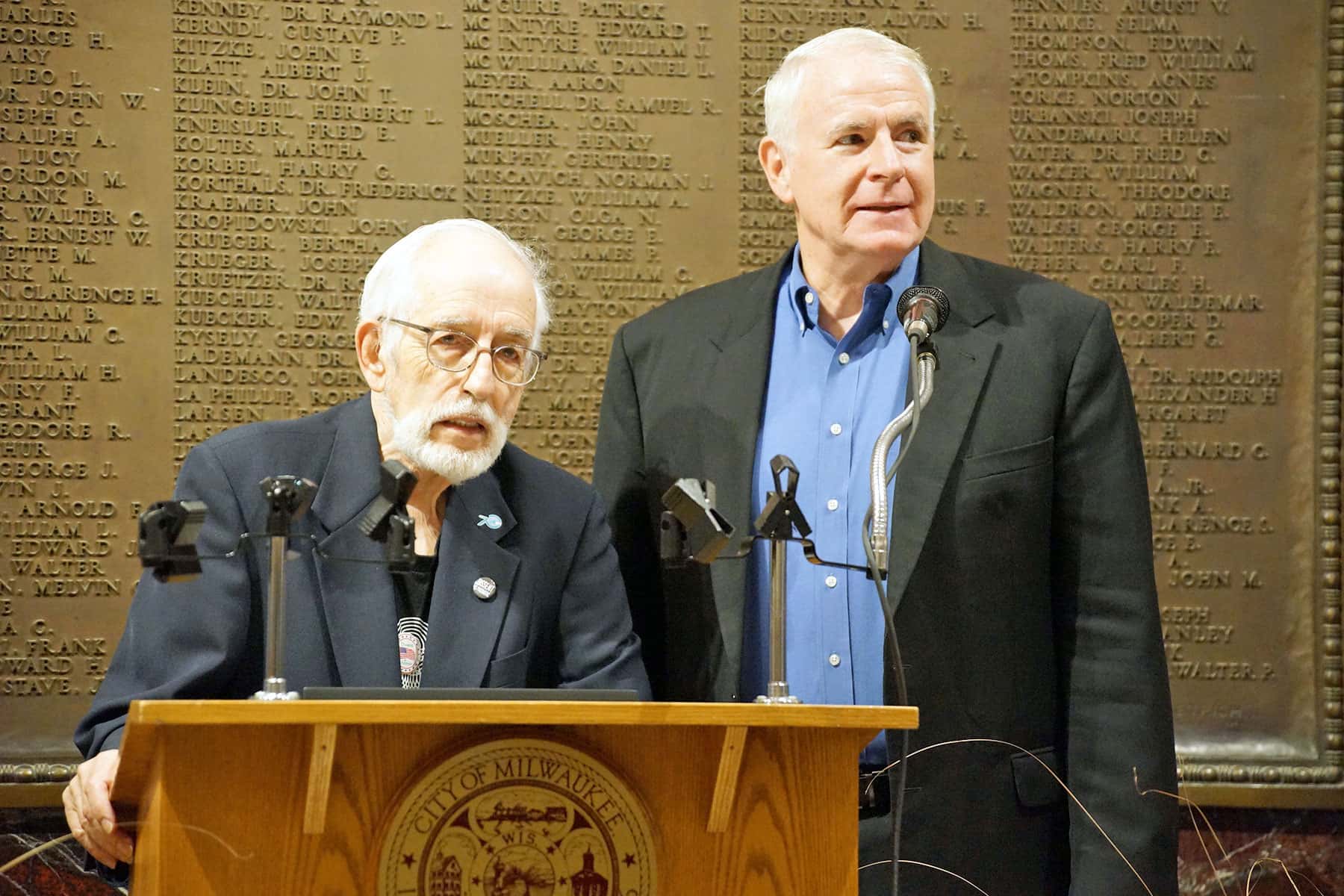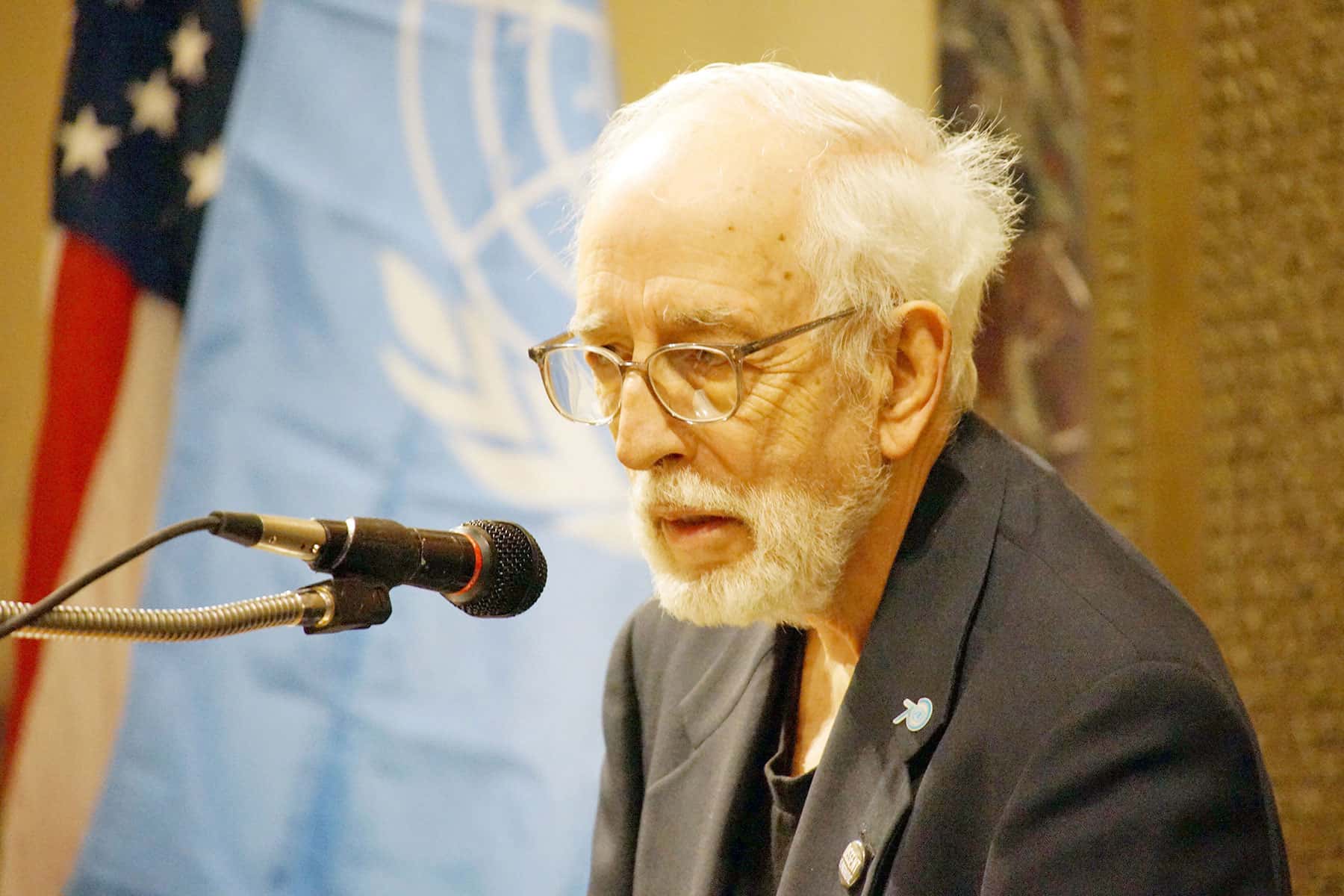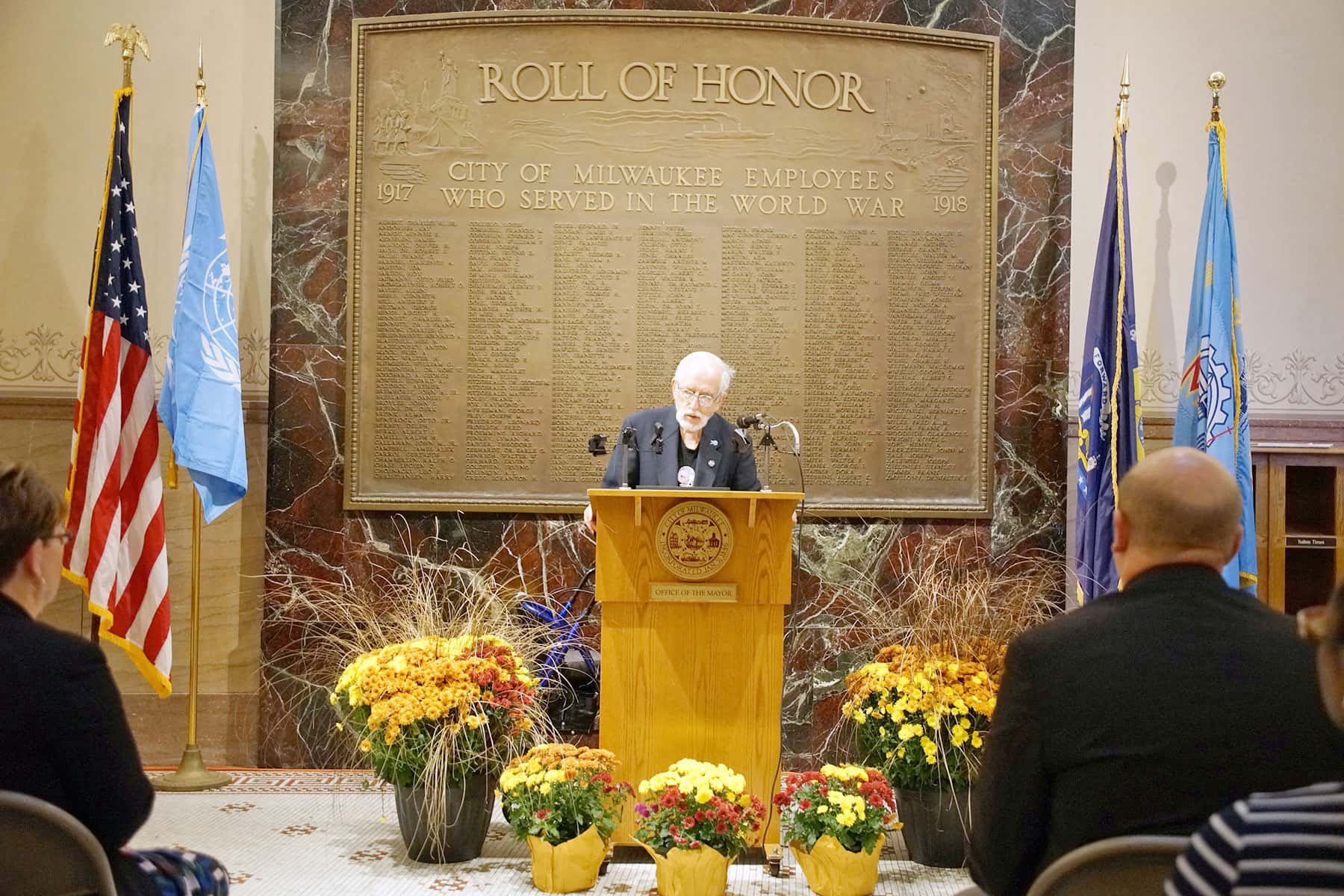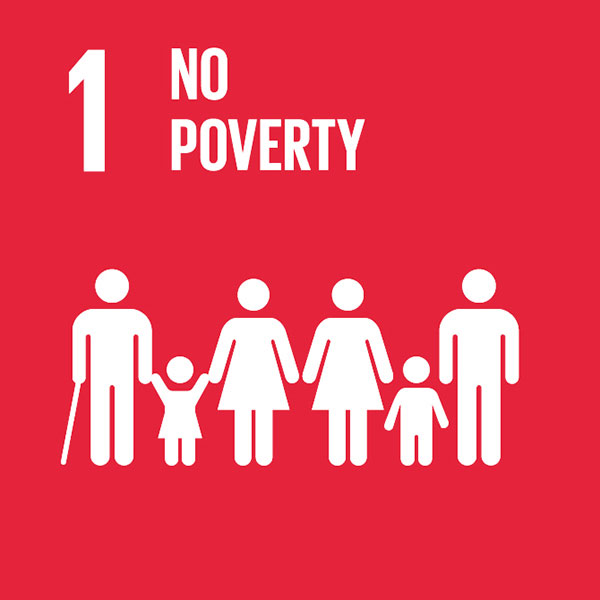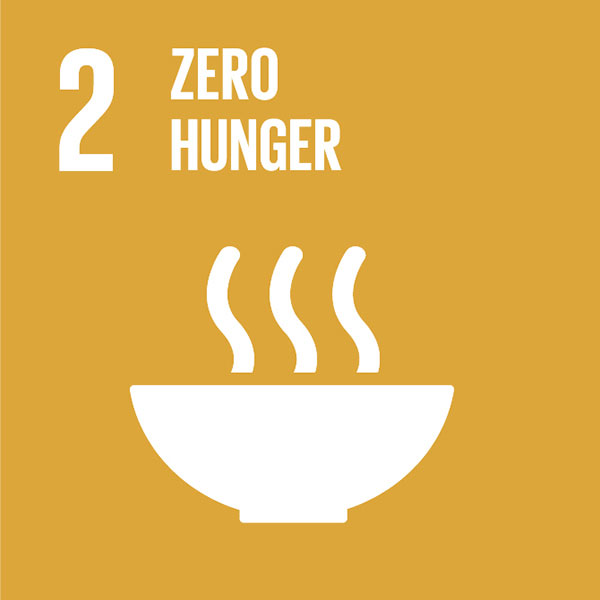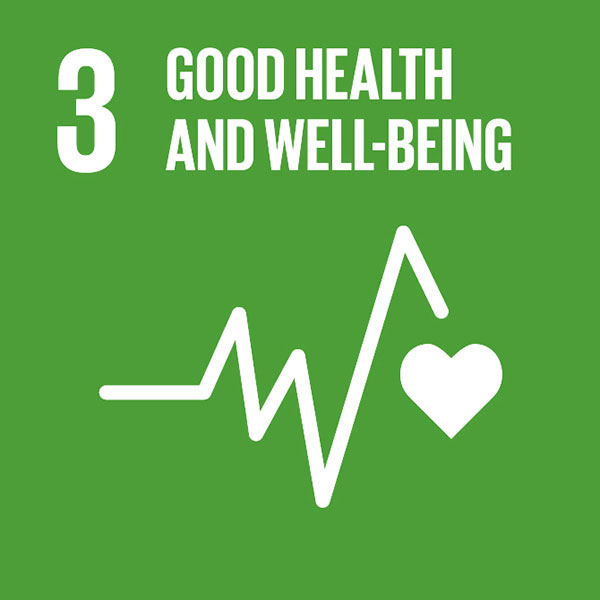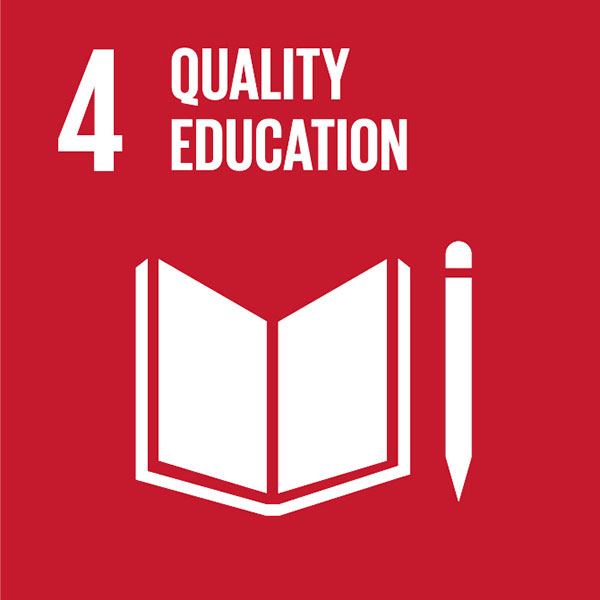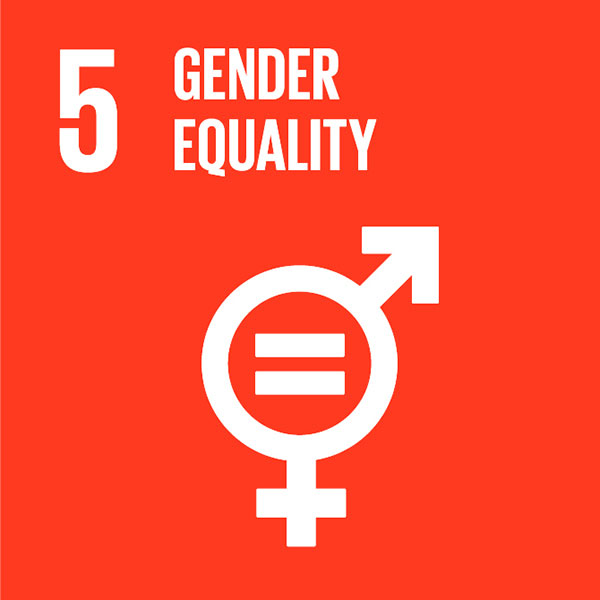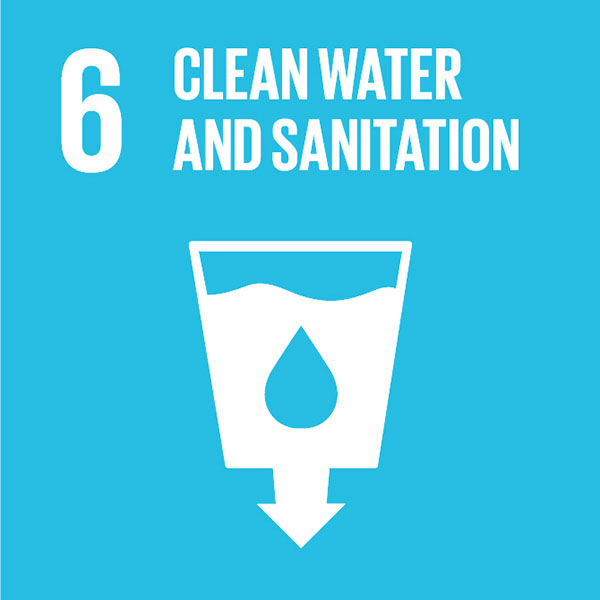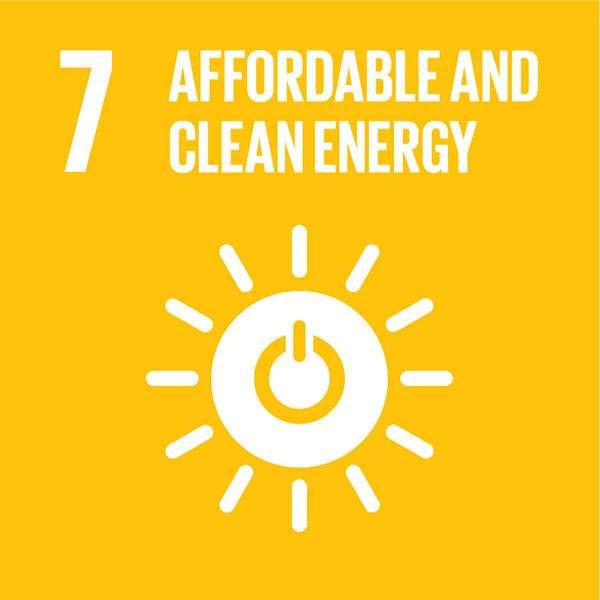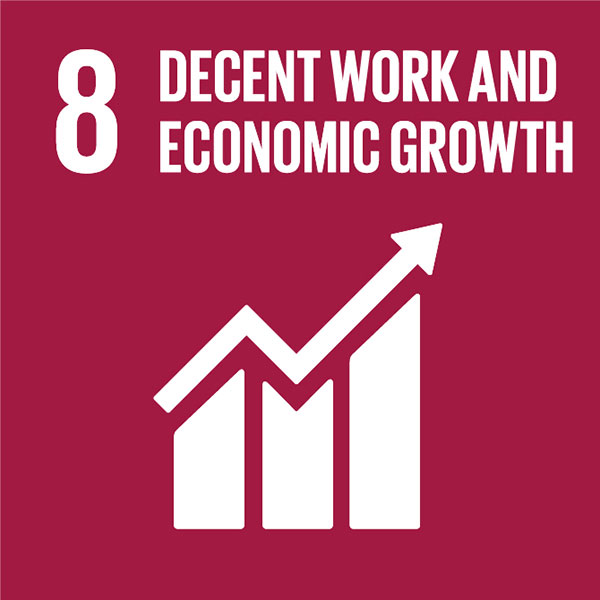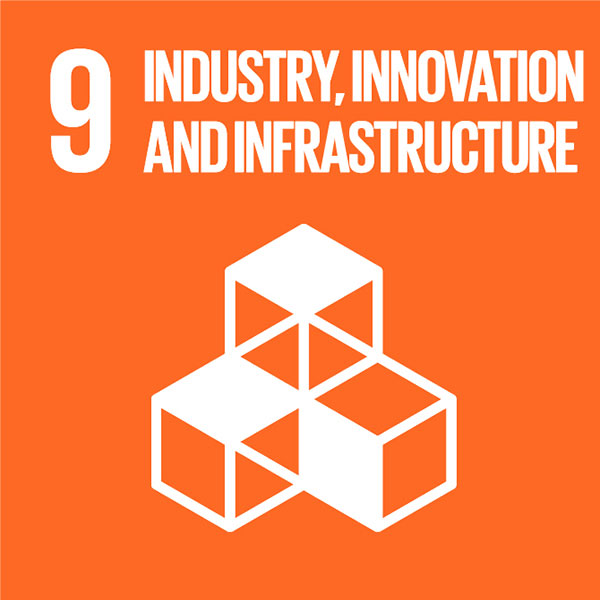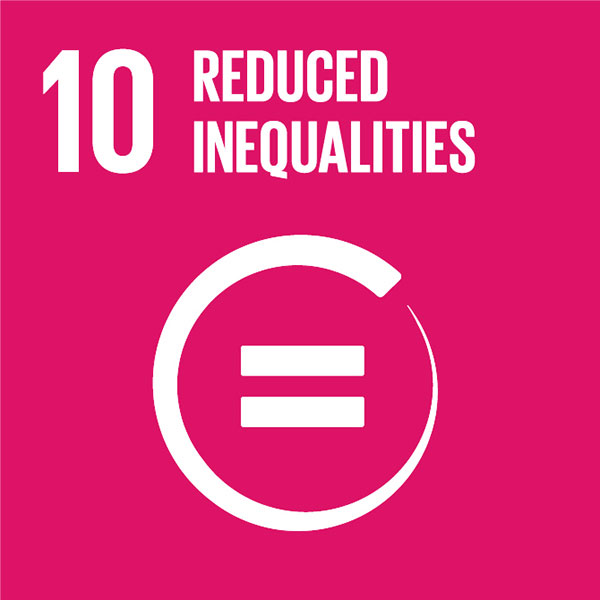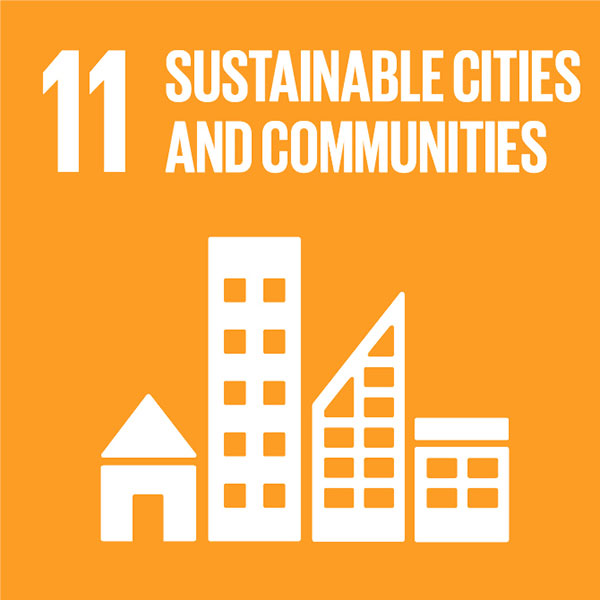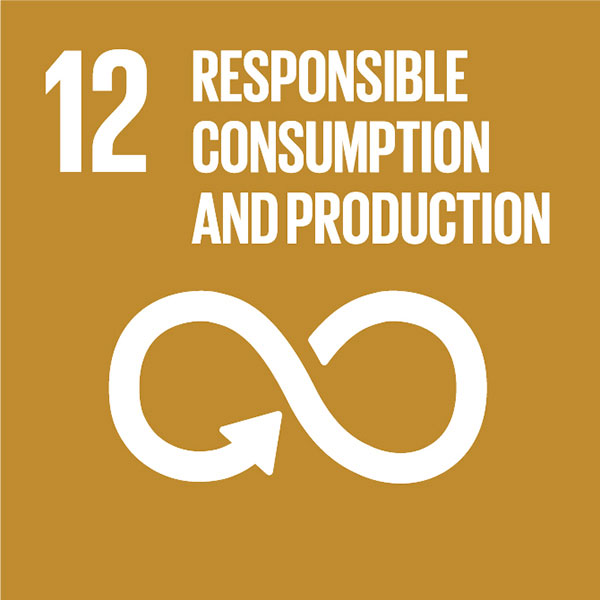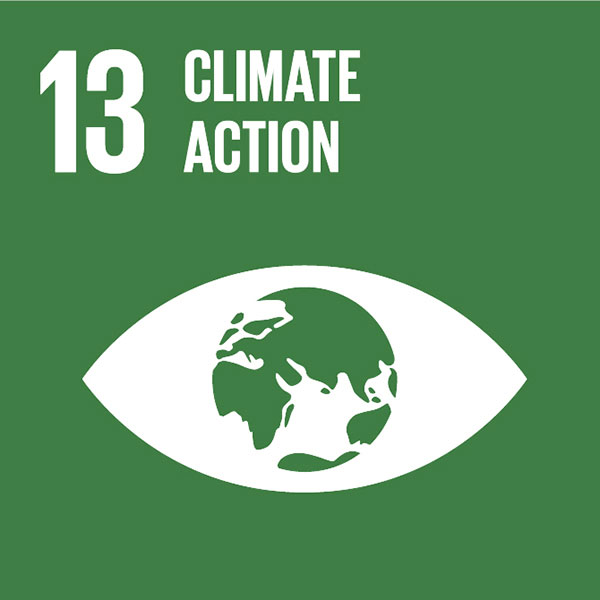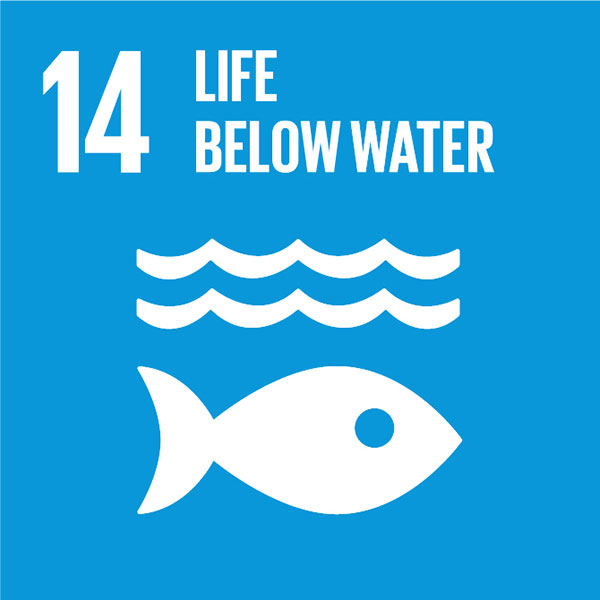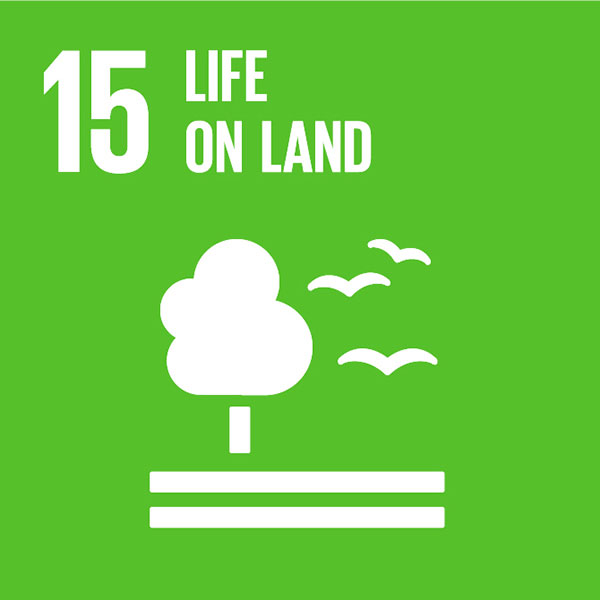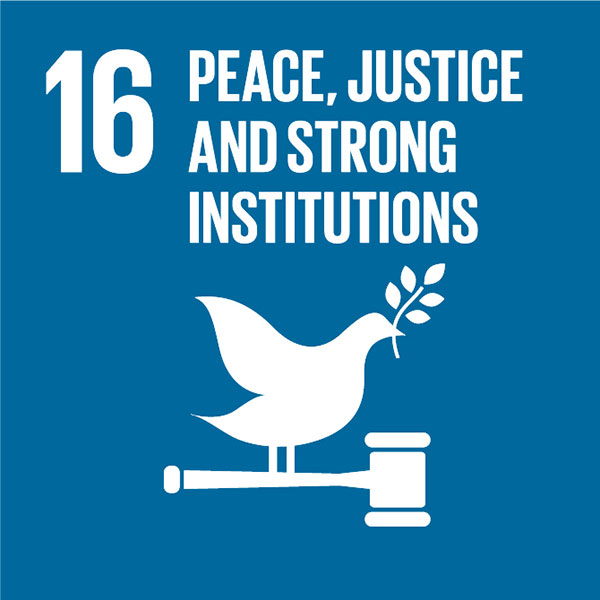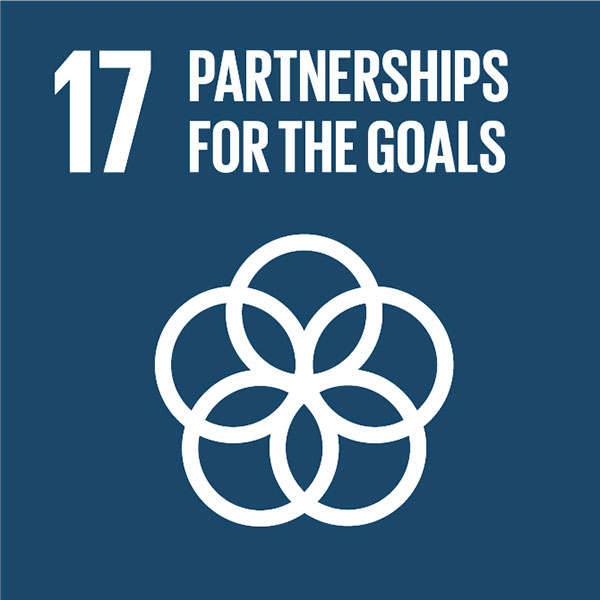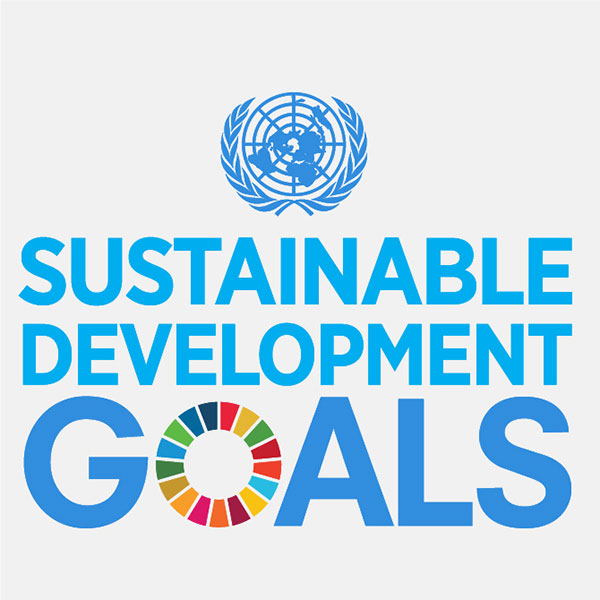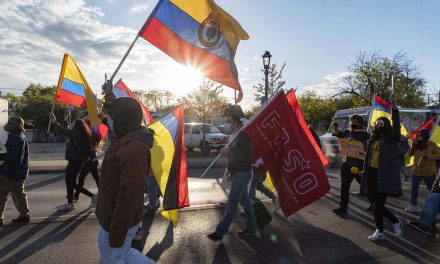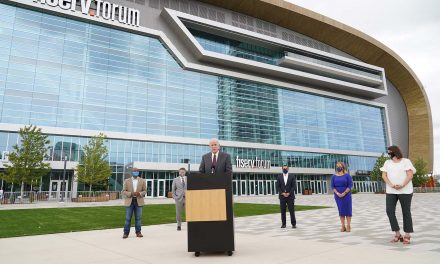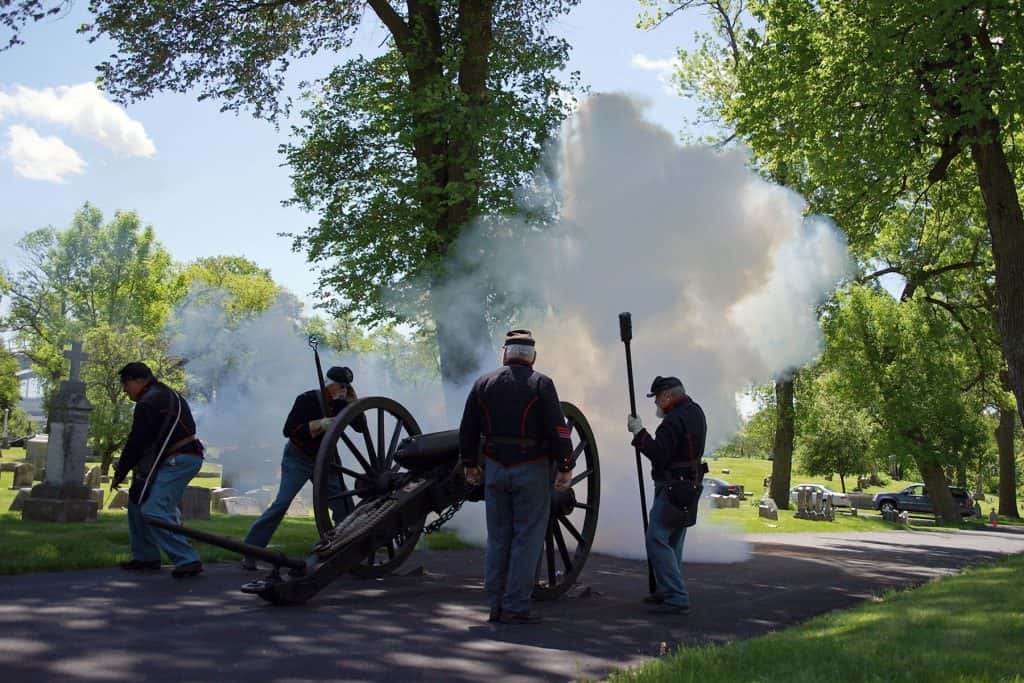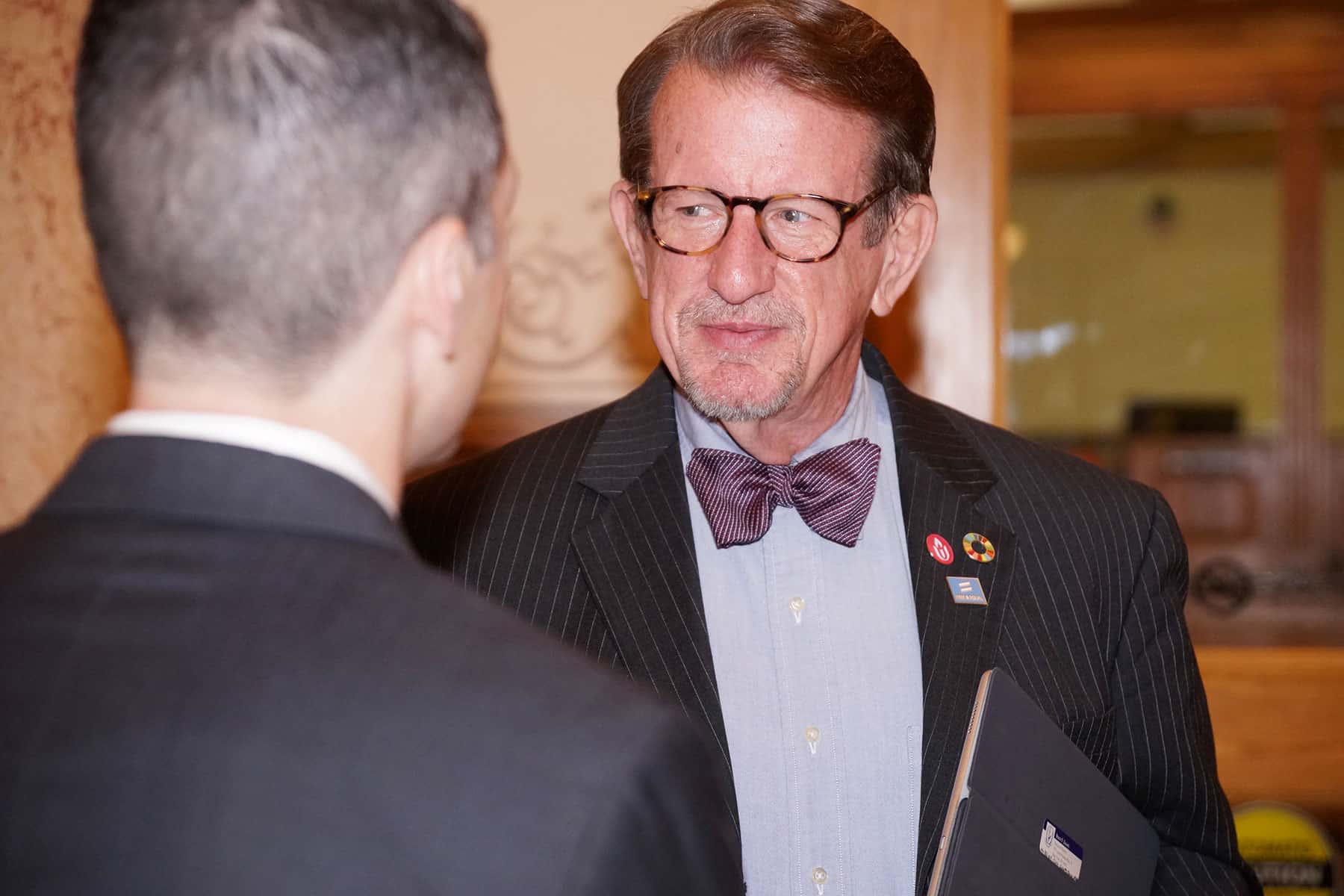
Celebrating seven decades of local and global contributions, the Mayor’s Committee on the United Nations commemorated the anniversary on October 24. More than one hundred participants attended the UN Day gathering at the City Hall Rotunda.
“The United Nations has survived 71 years without a major world war since it was created in 1945, unlike the league of Nations which did not last very long was unable stop World War Two.” said Steve Watrous, President of the United Nations Association, Greater Milwaukee.
Tom Barrett, Mayor of the City of Milwaukee, talked about the United Nations in terms of individuals just trying to live and not as countries around the world. Regardless of where people exist, they face challenges based on political, civic, and economic structures.
“I believe what’s most important is a relationship. Whether it’s a marriage, a community, or countries, we need to keep trying and find ways to communicate and understand other people. The more we can do that, the more likely there’s going to be a happy outcome,” said Mayor Barrett. “And I believe that is the strength of the United Nations. That’s why I’m proud to be the Mayor of a city that has recognized the United Nations and has a civic group that appreciates it.”
Americans often criticize and want our country to step away from the United Nations, but the UN is an American invention. The earliest concrete plan for a new world organization began at the U.S. State Department in 1939. The text of the “Declaration by United Nations” was drafted by President Franklin Roosevelt, British Prime Minister Winston Churchill, and Roosevelt aide Harry Hopkins, while meeting at the White House on December 29, 1941. The organization was established on 24 October 1945 with 51 member states, there are now 193. First lady Eleanor Roosevelt led the committee that drew up the Universal Declaration of Human Rights (UDHR), which owes its evolution from an 18th century document, the American Bill of Rights.
In his last United Nations Day message as Secretary-General, Ban Ki-moon recognized the efforts of courageous UN staff members who are on the front-lines of disaster and violence, and continue to respond to the plight of the vulnerable people across the world.
“We have also suffered enormous heartbreak, including unresolved conflicts causing immense suffering throughout the troubled Middle East, South Sudan, the Sahel, and beyond,” said Secretary-General Ban in his message on the Day. “Together, we have put in place some solid foundations for shared progress, which we must build on by working even harder to empower women, engage youth, and uphold human rights for all.”
Secretary-General Ban’s tenure as the UN Secretary-General comes to a close at the end of this year, with António Guterres assuming the role on January 1, 2017.
Senior Director of Curriculum for Milwaukee Public Schools, Dr. Jennifer Smith, talked about the successful model UN programs in classrooms that would culminate in the United Nations World Fair during next Spring.
“We are very excited that this year, through a generous grant from the Greater Milwaukee Foundation’s Annette J. Roberts and Joan R. Robertson Fund for World Peace, World Law, and Peace Education, we have opportunities to bring the United Nations experience to 4th and 6th grade classrooms at eight Milwaukee public schools,” said Dr. Smith. “These eight schools represent some of our most diverse education sites, with students speaking some 35 different languages. This brings the United Nations to life in the classrooms.”
The curriculum will also focus on critical academic skills such as researching and writing for presentations. In addition to the knowledge the students will learn about these countries and cultures, they will gain the experience about debate techniques, negotiation abilities, and conflict resolution which will further our MPS mandate that all students are college and career ready.
“When we talk about the United Nations and the Millennium Goals for the developing world, to eradicate poverty, racial disparity, senseless violence, and disease, when we have all those issues our own doorstep in Milwaukee,” said 3rd District Alderman Nik Kovac. “We have persistent disparity and persistent inequalities. So to fix all this in the world is not some abstract thing on the other side the planet, it happens right here outside City Hall.”
Dr. Bruce Knotts, Executive Director, Unitarian Universalist United Nations Office, was featured as the keynote speaker of the event. He pointed out that on the wall behind where he spoke were the names of people from Milwaukee who had served in the First World War.
“You’ll notice it says ‘the World War’ because they thought that was going to be the one and only global war. It wasn’t,” said Dr. Knotts. “The League of Nations was supposed to end such world wars, and it failed only 26 years later.”
The UN has six principal organs: the General Assembly, the Security Council, the Economic and Social Council (ECOSOC), the Secretariat, the International Court of Justice, and the United Nations Trusteeship Council which has been inactive since 1994. UN System agencies include the World Bank Group, the World Health Organization, the World Food Program, UNESCO, and UNICEF.
Without the United Nations there would be no action on environmental change, like the Paris climate accords, or a global agreements on human rights. The League of Nations never had a mechanism for civil society to engage with the organization, but the United Nations bake that ability into the charter. Civil society is not just member states, but cities like Milwaukee, religious organizations, and secular organizations that can really engage in the work of the United Nations. Civil society pushes and prods, making sure that things go the right way.
“I’m supposed to talk about a world without the United Nations, and that’s just a horrifying thought to me,” added Dr. Bruce Knotts. “To have a world without the UN, I can’t even imagine that. If we didn’t have a United Nations, I’m very convinced that we would’ve gone into a Third World War.”
The Mayor’s proclaim designated Monday, October 24 to be United Nations Day throughout the City of Milwaukee.
WHEREAS, The United Nations was established in 1945 to promote and protect human rights and fundamental freedoms, principles supported by the City of Milwaukee through the creation of the Mayor’s Committee on the United Nations by the late Mayor Frank P. Zeidler.
“We should be very proud that Milwaukee took a leadership role, originally in promoting the UN throughout the country, and we need to continue to do that,” said Don Richards, Chair of the Mayor’s Committee on the United Nations and retired Ninth District Alderman.
In December 2014, the UN declared this to be the decade of people of African dissent. It is a decade that will not only celebrate and commemorate the contributions of people of African dissent around the world, but also to try to make things better for people of color who were discriminated against.
“Sometimes we obsess on our problems so much, which isn’t a bad thing because we should try to solve our problems,” said Alderman Kovac. “But maybe we should not forget the problems that we prevent, which is often hard to take credit for something that didn’t happen.”
End extreme poverty. Fight inequality and injustice. Fix climate change. These are important Global Goals, and world-changing objectives that will require cooperation among governments, international organizations and world leaders. It seems impossible that the average person can make an impact. But every individual is part of the solution, even the laziest and most indifferent person. The United Nations has compiled a list of steps that can be done to make an impact, many without event leaving the comfort of a couch.
From sofa superstar to neighborhood hero, The Lazy Person’s Guide to Saving the World
Sustainable Development Goals
On September 25th 2015, countries adopted a set of goals to end poverty, protect the planet, and ensure prosperity for all as part of a new sustainable development agenda. Each goal has specific targets to be achieved over the next 15 years.
“Now, Therefore the General Assembly proclaims this UNIVERSAL DECLARATION OF HUMAN RIGHTS as a common standard of achievement for all peoples and all nations, to the end that every individual and every organ of society, keeping this Declaration constantly in mind, shall strive by teaching and education to promote respect for these rights and freedoms.” – The Universal Declaration of Human Rights (UDHR)
Lee Matz
The Millennium Development Goals (MDGs) were the eight international development goals for the year 2015 that had been established following the Millennium Summit of the United Nations in 2000, following the adoption of the United Nations Millennium Declaration. All 189 United Nations member states at that time, and at least 22 international organizations, committed to help achieve the Millennium Development Goals.
1. To eradicate extreme poverty and hunger
2. To achieve universal primary education
3. To promote gender equality and empower women
4. To reduce child mortality
5. To improve maternal health
6. To combat HIV/AIDS, malaria, and other diseases
7. To ensure environmental sustainability
8. To develop a global partnership for development
Article 01 – Right to equality
Article 02 – Freedom from discrimination
Article 03 – Right to life, liberty and personal security
Article 04 – Freedom from slavery
Article 05 – Freedom from torture and degrading treatment
Article 06 – Right to recognition as a person before the law
Article 07 – Right to equality before the law
Article 08 – Right to remedy by capable judges
Article 09 – Freedom from arbitrary arrest and exile
Article 10 – Right to fair public hearing
Article 11 – Right to be considered innocent until proven guilty
Article 12 – Freedom from interference with privacy, family, home and correspondence
Article 13 – Right to free movement
Article 14 – Right to protection in another country
Article 15 – Right to a nationality and the freedom to change it
Article 16 – Right to marriage and family
Article 17 – Right to own property
Article 18 – Freedom of thought, conscience and religion
Article 19 – Freedom of opinion and information
Article 20 – Right to peaceful assembly and association
Article 21 – Right to participate in government and elections
Article 22 – Right to social security
Article 23 – Right to desirable work and to join trade unions
Article 24 – Right to rest and leisure
Article 25 – Right to adequate living standard
Article 26 – Right to education
Article 27 – Right to participate in the cultural life of community
Article 28 – Right to a social order
Article 29 – Responsibilities to the community
Article 30 – Freedom from interference in these human rights

